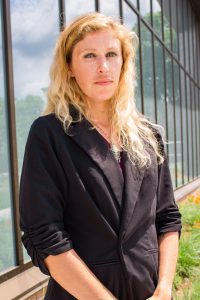
The Journey Begins
A doctoral program is an intellectually intensive experience and the most significant academic journey upon which a student embarks (Mujtaba, Scharff, Cavico, & Mujtaba, 2008). When educational inquiries become contentious, and the desire to implement change proves insurmountable, practitioners may decide to pursue a Doctor of Education degree. Academic residency at Winona State University immerses students in scholarship and socially integrates them into professionalism. Students align with the academic community and utilize resources that assist the educational investigation and support meaningful research. Conversations with faculty, who recall their experiences, reveal the dramatic adjustments doctoral life requires: shifts in identity (Buss, Zambo, Painter, & Moore, 2013), the lifestyle of a scholar, and recognition that the end of the journey, graduation, is actually the beginning of work as a scholar-practitioner. The path to a doctoral degree proves achievable, yet the experience requires openness to malleability, and students must welcome change. Students embarking on their doctoral journey learn to think differently (Zambo, 2011), ask questions, and satisfy inquiries with research.
Buss, R. R., Zambo, D., Painter, S. R., & Moore, D. W. (2013). Examining faculty member changes in an innovative education doctorate program. Innovative Higher Education, 38, 59-74. doi: 10.1007/s10755-012-9222-3
Mujtaba, B. G., Scharff, M. M., Cavico, F. J., & Mujtaba, M. G. (2008). Challenges and joys of earning a doctorate degree: Overcoming the “ABD” phenomenon. Research in Higher Education Journal, 1(1), 10-26. Retrieved from https://www.researchgate.net/publication/228816901_Challenges_and_Joys_of_Earning
Zambo, D. (2011). Action research as signature pedagogy in an education doctorate program: The reality and hope. Innovative Higher Education, 36, 261-271. doi: 10.1007/s10755-010-9171-7
Problem of Practice
Reading and literacy set challenges for under-prepared college students and reading proficiency impacts student success across the curriculum (Boatman & Long, 2018). In public two-year institutions, 28 percent of students take developmental English, which includes reading, writing, or both (Department of Education, 2017). Adult learners, aged twenty-five or older, are among this population. In 2007, 38 percent of college enrollment accounted for students twenty-five or older (Ross-Gordon, 2011), and between 2003-2009, 68 percent enrolled in developmental education courses (Chen & Simone, 2016). Research into home literacy environments and reading culture in the United States and Finland could reveal methods to help reshape adult learners’ reception to reading and reading habits.
Boatman, A. & Long, B. T. (2018). Does remediation work for all students? How the effects of postsecondary remedial and developmental courses vary by level of academic preparation. Educational Evaluation and Policy Analysis, 40(1), 29-58. doi: 10.3102/0162373717715708
Chen, X. & Simone, S. (2016). Remedial coursetaking at US public 2- and 4-year institutions: Scope, experiences, and outcomes. National Center for Education Statistics. Retrieved from https://nces.ed.gov/pubs2016/2016405.pdf
Department of Education. (2017). Developmental education challenges and strategies for reform. Retrieved from https://www2.ed.gov/about/offices/list/opepd/education-strategies.pdf
Ross-Gordon, J. M. (2011). Research on adult learners: Supporting the needs of a student population that is no longer nontraditional. Peer Review, 13(1). Retrieved from https://www.aacu.org/publications-research/periodicals/research-adult-learners- supporting-needs-student-population-no
Research Questions
Public two-year institutions struggle to retain students enrolled in developmental education (Chen & Simone, 2016). Poor reading proficiency impedes student success across the curriculum (Boatman & Long, 2018). Finland has one of the world’s highest literacy rates (“Survey of Adult,” 2012) and renown education systems. A study into Finland’s reading culture and home literacy environments could respond to the problem of best practices and address challenges for adult learners with children. The following research questions guide this study:
RQ1: What are the reading habits of adults and children in Finland?
RQ2: What does Finnish literacy culture suggest to improve best practices for reading instruction?
RQ3: How do home literacy environments affect reading culture in adult learners with children?
Boatman, A. & Long, B. T. (2018). Does remediation work for all students? How the effects of postsecondary remedial and developmental courses vary by level of academic preparation. Educational Evaluation and Policy Analysis, 40(1), 29-58. doi: 10.3102/0162373717715708
Chen, X. & Simone, S. (2016). Remedial coursetaking at US public 2- and 4-year institutions: Scope, experiences, and outcomes. National Center for Education Statistics. Retrieved from https://nces.ed.gov/pubs2016/2016405.pdf
Survey of adult skills: First results. (2012). Country note (Finland). Retrieved from https://www.oecd.org/skills/piaac/Country%20note%20-%20Finland.pdf